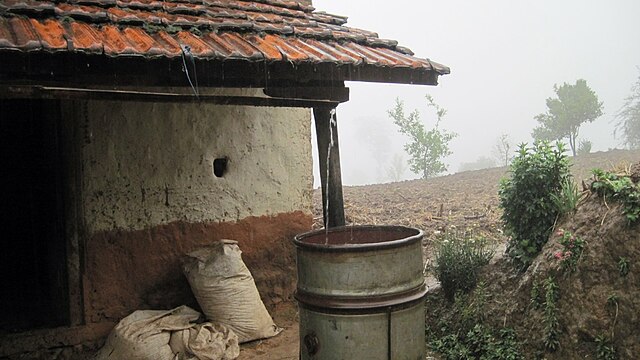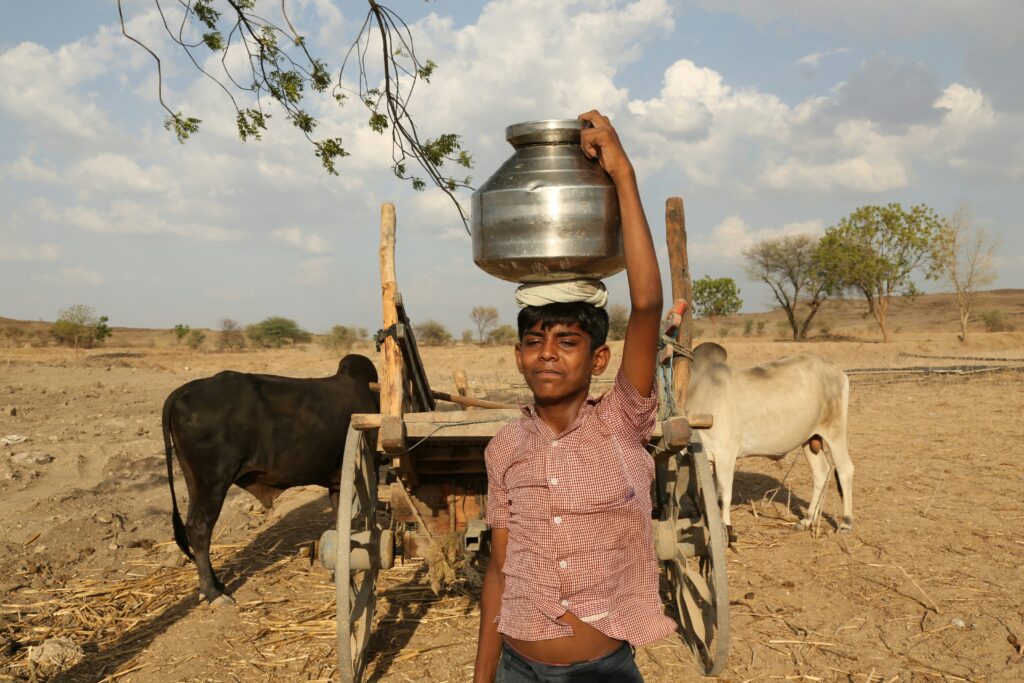Building Water Resilience through the National Water Mission
India’s worsening water crisis demands that the National Water Mission urgently rethink its strategy.
Water is arguably India’s most undervalued and overstressed resource. As the country confronts deepening water insecurity, the National Water Mission (NWM), launched in 2011 under the National Action Plan on Climate Change, remains one of the few policy instruments explicitly focused on long-term water sustainability. With its central aim of improving water use efficiency by 20%, the Mission set out with a clear mandate. Yet, more than a decade later, the mission has seen uneven progress, limited results, and has not lived up to its full potential.
Water is arguably India’s most undervalued and overstressed resource.
The National Water Mission mainly focuses on technical solutions and improving efficiency. It promotes things like water audits, micro-irrigation, rainwater harvesting, and sustainable farming through campaigns like “Sahi Fasal.” While these steps are important, they only address part of the problem. India’s water crisis goes much deeper. It’s also about political and economic challenges, poor coordination between central and state governments, weak institutions, and the lack of a clear, long-term plan.

Take agriculture, which consumes nearly 80% of India’s freshwater. While NWM promotes water-efficient irrigation and better crop choices, the country’s current subsidy regime, especially for power and fertiliser, continues to encourage overextraction of groundwater and cultivation of water-intensive crops like paddy and sugarcane even in semi-arid regions. Punjab and Haryana grow paddy not because it makes climatic sense, but because the policy ecosystem rewards it. The Mission’s behavioural nudges are no match for structural economic incentives. Unless NWM is backed by bold reforms in Minimum Support Prices, procurement policies, and energy pricing, its goals will remain out of reach.
Urban water management presents another challenge. The NWM advocates water-sensitive urban design, wastewater reuse, and leakage reduction, but most Indian cities continue to struggle with inadequate infrastructure. While over 72,000 million litres of sewage is generated daily, only 28% is treated, with the remaining 72% largely released untreated into rivers, lakes, and other water bodies. Moreover, governance of urban water remains divided between multiple municipal, state, and parastatal agencies, often working at cross-purposes. While the Mission encourages convergence with Smart Cities and AMRUT schemes, such integration remains weak and unaccountable.
While over 72,000 million litres of sewage is generated daily, only 28% is treated.
Perhaps the most significant gap in the National Water Mission is its silence on ecological sustainability. India’s rivers are dying, wetlands are vanishing, and groundwater tables are collapsing. The Mission does little to connect water use with the ecosystems that sustain it. A future-ready water mission must embed river basin planning, aquifer recharge, and ecosystem restoration at its core. Water should not only be conserved for use, but it must also be allowed to flow for the health of the environment.
The Mission’s strengths lie in its recognition of water as a cross-sectoral issue and in its attempt to mainstream efficiency. But efficiency alone cannot solve a problem rooted in inequality, mismanagement, and environmental neglect. What India needs is not just a mission, but a movement. One that aligns agricultural reform, urban planning, ecological restoration, and digital governance under a shared vision of water security.

The National Water Mission can be that starting point. But to truly deliver water resilience for India’s 1.4 billion people, it must evolve from a siloed scheme into a transformative, whole-of-government approach.
